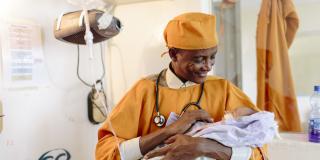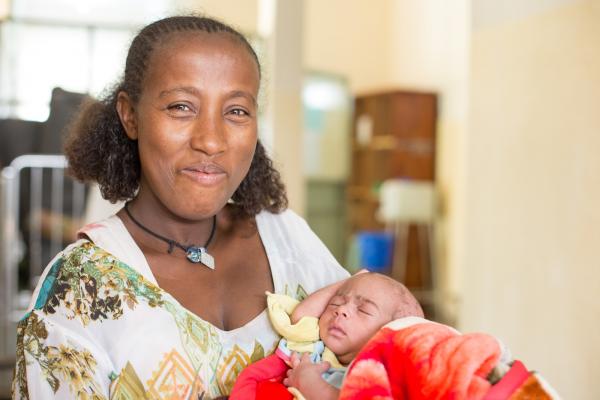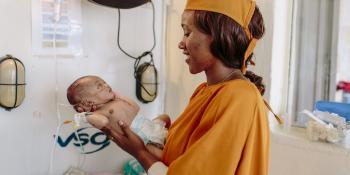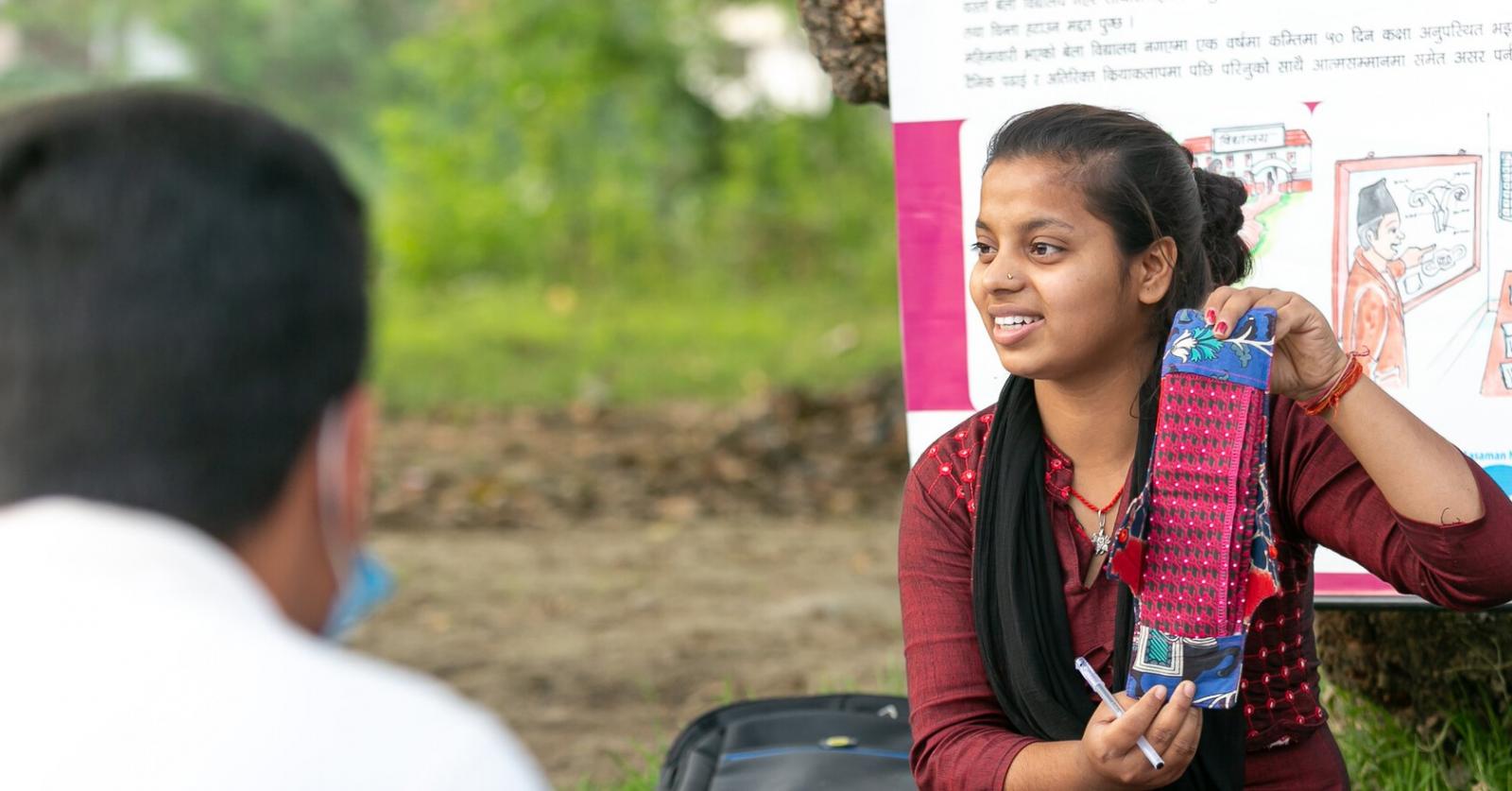
This project has now ended.
Improving access to quality healthcare for mothers and their babies.
Half of all new mothers in developing countries such as Ethiopia and Uganda give birth without a skilled health professional present, often at home. This means complications can be catastrophic, with women not able to access medical care to save their babies - or themselves.
Our health programming in Ethiopia and Uganda works to:
- address the barriers that prevent women seeking care;
- improve the quality of facilities and care available; and
- build the capacity of health workers to deliver quality care.
We've supported 47 neonatal intensive care units in Ethiopia over the past six years.
We've supported 1,232 health workers and interns with on-the-job coaching and training in Karamoja, Uganda.
In Ethiopia, the number of mothers bringing their babies to be admitted to VSO-supported hospitals has increased by half.
In Moroto Hospital, Uganda, the neonatal mortality rate has reduced by 57%.

Providing the right resources
In Ethiopia, we're working to equip hospitals with the resources and skills they need to reduce high rates of neonatal and maternal mortality. Over the past six years, we've either established or improved:
- 47 neonatal intensive care units (NICUs),
- 12 newborn corners (NBCs),
- four paediatric high dependency units (PHDUs), and
- four maternity waiting homes.
We're also supporting specialist facilities such as dedicated rooms for babies with infectious diseases like meningitis, and hot rooms to help premature babies keep warm.
In Suhul Hospital, the rate of babies dying in their first 28 days decreased by 40% in the year after opening the NICU.
Developing the right skills
Just as important as having the right equipment is having the right expertise.
There is a high team spirit amongst the NICU staff, a high level of cooperation... We are cascading the training to other nurses from the surrounding hospitals. We share resources and we share skills and knowledge.Solomon TesfayeHead nurse at Arba Minch general hospital, Ethiopia
In Ethiopia, we've provided training and on-the-job mentoring to nurses to ensure that 'model' units are adequately staffed, and we are supporting them with data collection and application. International volunteers have played a central role in establishing the units, then reducing their involvement so that locally-trained staff can take over full responsibility.
In Karamoja, Uganda, our expert volunteers have trained 127 health workers in basic emergency obstetric and newborn care, and have supported 1,232 medics and interns to develop their skills through on-the-job training and mentoring.
Here, VSO national and international volunteers work together to develop essential resources, including photo walls in the NICU to help both nurses and new mothers deliver appropriate care, and documentation to improve the administration of drugs and fluids.
Alongside developing the skills of frontline staff, we're working to strengthen healthcare at a systemic level, by providing training in hospital management, data collection and community engagement.
Driving demand for hospital care
By establishing and strengthening NICUs and other specialist facilities, we're encouraging mothers to choose hospital over a potentially dangerous unattended home birth. This is further strengthened by community outreach activities, which encourage people to understand their healthcare rights and demand the services they deserve.
In Uganda, we've trained 120 volunteer peer educators, who share information on maternal and newborn health - as well as sexual and reproductive health more broadly - with their communities. In Ethiopia, we've worked with the Government and other development partners to deliver awareness-raising campaigns which increase demand for health services - with hospital admission rates doubling in some target areas.
Stories from our work reducing newborn deaths:

Developing a centre of best practice at Arba Minch General Hospital
Thanks to funding, support and expertise from VSO, the Neonatal Intensive Care Unit at Arba Minch General Hospital has rapidly become a regional centre for best practice for the care of premature or sick babies and their mothers.

Support us with a donation
